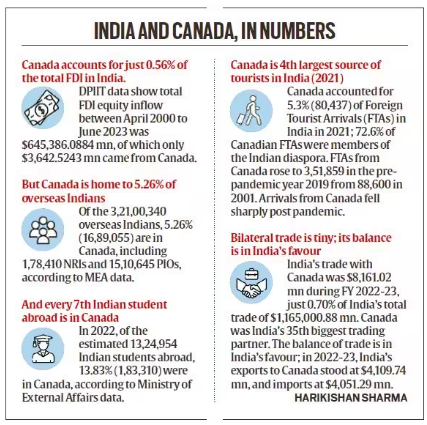![]() 22 Sep 2023
22 Sep 2023
 India and Canada have a long history of bilateral relations, underpinned by shared values of democracy, pluralism, and people-to-people ties.
India and Canada have a long history of bilateral relations, underpinned by shared values of democracy, pluralism, and people-to-people ties.Canada is becoming an international hub of the Anti-India movement as well as a safe haven for criminals due to the following factors:
|
Potential Implications of worsening India-Canada Relations:
|
Source: Indian Express
<div class="new-fform">
</div>